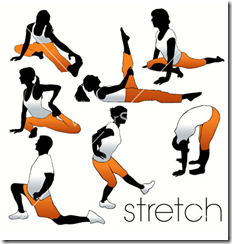It’s easy to criticize what people do. It’s often what people don’t do that matters more, yet these inactions are often ignored. So leave me alone, you inactive, moronic toadstools.
/I was recently sitting at my desk in my classroom, drinking a Diet Coke while correcting papers. A colleague walked in, and as we wrapped up our conversation, she commented on the soda that I was drinking.

“You know, Diet Coke really isn’t good for you. You drink way too much. You should think about switching to something healthier.”
“Thanks,” I said. “I’ve actually cut back on soda quite a bit since the beginning of the year.”
My tone was warm. My response was benign. But beneath my calm exterior, I was annoyed. Completely and thoroughly annoyed. Here’s why:
People find it exceedingly easy to criticize a person for action taken but rarely consider the reverse.
Yes, I drink Diet Coke. And yes, despite the Food and Drug Administration's approval of this product and its 33 year history of consumer consumption without any apparent links to leprosy or tuberculosis, carbonated beverages – and Diet Coke in particular – is poison in the minds of many people.
I understand that water is probably better for me than Diet Coke, but that doesn’t mean that Diet Coke is going to kill me. Just like the coffee and alcohol that most people consume on a daily basis (and I do not) probably isn’t going to kill them, either.
Nevertheless, I’m also able to see that too much of almost anything can be bad. Recognizing the excessive quantity of soda that I was drinking in a given day, I chose to cut back. As part of my New Year’s resolutions, I have almost completely stopped drinking Diet Coke in my home. As a result, I’ve cut my soda consumption by more than half, and other than the nights when we are eating pizza or pasta for dinner, I rarely miss it.
But here’s the thing:
I happen to know for a fact that the woman who commented on my soda consumption does not exercise. She doesn’t jog or play a sport or belong to a gym. Other than the occasionally stress-filled work situation, she may never elevate her heart rate beyond a resting position.
Yet how often does someone criticize or even express concern for her lack of physical activity? Almost never is my guess because it’s almost impossible to comment on something that can’t be seen. Unless you followed this person for a week, peering into windows of her home at all hours of the day, you would never know that she lives a relatively sedentary lifestyle.
But my Diet Coke consumption? That’s obvious. The soda is in my hand. On my desk. Stuffed in my refrigerator. It’s easy to comment on my soda consumption because you see it. It’s a positive action.
So people comment on it and criticize it all the time.
But who is living a healthier lifestyle?
The person who exercises on a treadmill or elliptical machine for 45 minutes at least four times a week, does push ups and sit ups every day, practices yoga (poorly) and meditates every morning, and plays golf and basketball and runs in the non-winter months. And drinks Diet Coke…
… or the person who restricts herself to water and all natural juices but does not exercise in any way?
If you don’t think that my lifestyle is probably healthier (and you should), can we at least agree that it’s too close to call?
I’m often criticized for my eating and drinking habits. The lack of vegetables in my diet. My somewhat limited palate. My choice of soda over every other beverage.
But I also know that I’m being criticized by people who never exercise. Who watch 30 hours of television each week. Who haven’t read a book in ten years. Who can’t name the three branches of government. Who spend hours on hair and nails and makeup but not a single minute maintaining a healthy heart. Who can name every member of the Kardahian family but don’t know the name of even one of their state’s Senators or a single member of the Supreme Court.
It’s so easy to criticize the overt, public actions of a person, because it’s what we can see. We can point and frown and criticize.
But it’s often the things that people don’t do – their inaction and underlying stupidity – that ultimately mean more but go unnoticed because they are not conveniently wrapped in a plastic bottle or red label.



